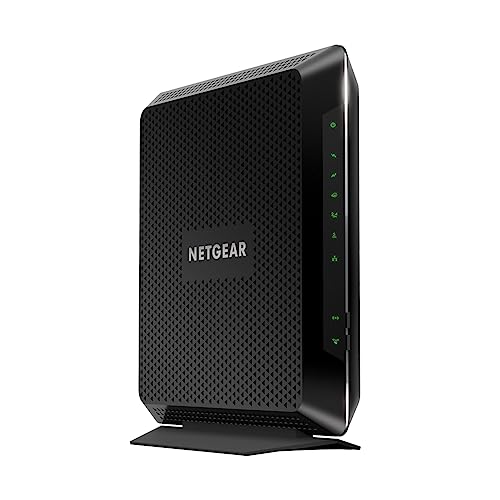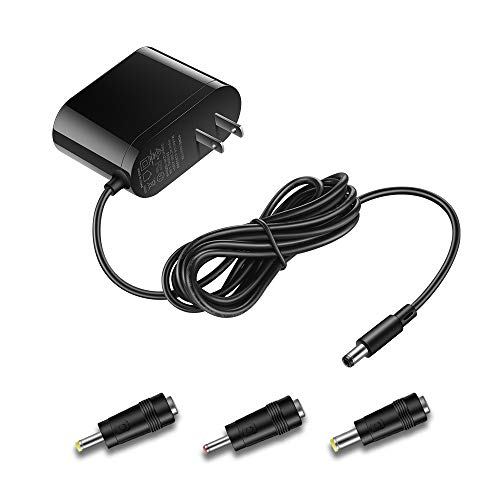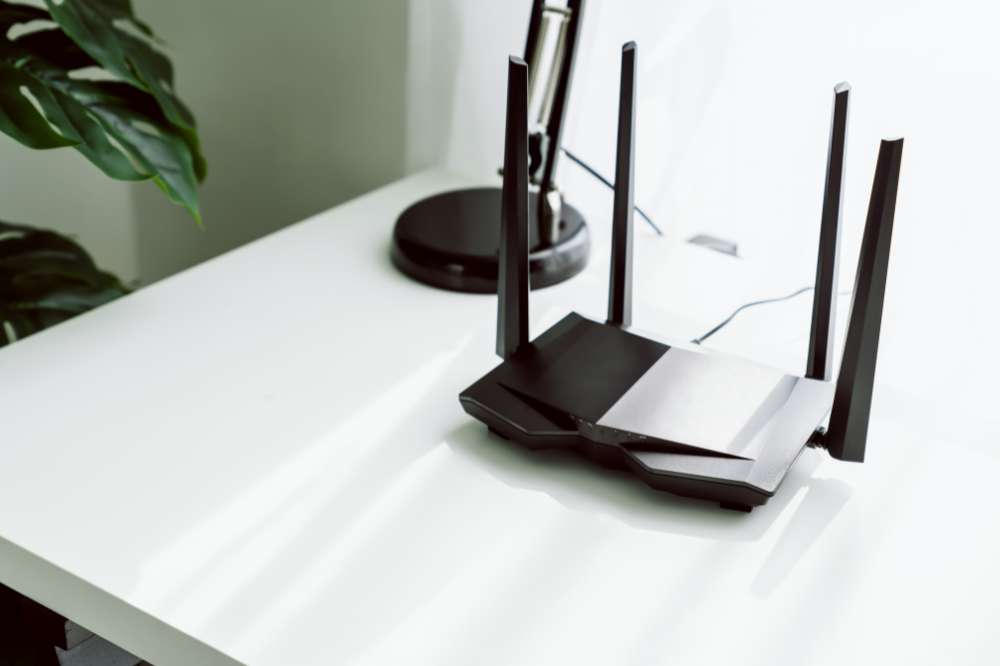If you work from home, you probably enjoy the flexibility and ease that remote work offers. Companies are now gradually shifting away from all their employees working within the brick-and-mortar offices.
Likewise, professionals are switching to careers that let them work remotely.
While remote work can be quite comfortable, you should know that it comes with certain challenges that can disrupt your work. One of these challenges is internet connection. To boost your productivity, we have come up with solutions to ensure stable remote work connectivity.
How to Boost Internet Connection for Remote Work

- Compatible with major cable internet providers including Xfinity, Spectrum, Cox and more. NOT compatible...
- [Compatibility] 12V Power Supply Adapter Compatible with Netgear, Linksys, Asus,Motorola, Motorola/Arris...
As stated above, working from home can be challenging, especially when it comes to internet connectivity. Your productivity or otherwise is reliant on having a good home office Wi-Fi. Here are some of the challenges of remote and how to overcome them:
Get Word-Of-Mouth-Confirmation About Reliable ISPs
The first step in ensuring a reliable internet connection is choosing a trusted Internet Service Provider (ISP).
When selecting a data plan, you consider the volume of work you would be required to do remotely. You should subscribe to a plan that can accommodate your workflow.
Similarly, the ISP needs to offer services in your location, and you should also go for a plan that has high speed and strengthens remote work connectivity. And, of course, getting word-of-mouth confirmation on the best Wi-Fi for remote is a good idea.
Quality Video Calls Are Crucial for Remote Work
For remote workers, video calls are an integral part of the job. You would need to connect with colleagues and clients online. With a good Wi-Fi connection, you can brainstorm with others on the internet, review your company’s activities, and ultimately achieve set goals.
However, remember that the best Wi-Fi connection may not guarantee the best video call experience. This is particularly common with low-end computers. They do not possess the capacity to process quality video calls. So, if this is your experience, you should consider going for a high-end computer with a top-quality graphic processing unit (GPU).
Have a Backup With Mobile Data Plan
Setting up home office Wi-Fi is the best option for a stable and reliable internet connection. However, there might be times when your Wi-Fi connection is abruptly disconnected, and you need to join your colleagues in an online meeting. What do you do in such a situation? Just stand aloof and frustrated? Definitely not! You should have an alternative.
Have a backup internet connection by subscribing to a mobile data plan. Mobile data plans are also fast, reliable, and cheap. You can contact your service provider to check the options and know if their mobile data plans are flexible.
Restrict Connection to Your Home Office Wi-Fi
After setting up Wi-Fi, you should take extra precautions by ensuring you are the only one connected. This is because other persons within the bandwidth of your Wi-Fi may connect to the Wi-Fi and enjoy free internet access.
When other persons are connected to your Wi-Fi, you might experience a slow internet connection. It would help if you created a strong Wi-Fi password that no one can guess. Additionally, newer Wi-Fi for remote work routers comes with apps allowing you to monitor your Wi-Fi connection.
Further, you should beware of connecting too many apps and devices to the Wi-Fi yourself. When there are too many apps running at the same time on your device, internet speed slows down, and this will affect your office video calls.
To prioritize only work apps, check out your Wi-Fi settings. There is a Quality of Service option. This feature lets you select apps and websites crucial to working from home.
Update Device Software Regularly
If there is a notification on your PC or mobile phone that you need to update the software, you should probably heed the warning. Software updates are needed regularly to keep your devices running smoothly.
Often, when people ignore software updates, they experience difficulties in workflow. You should also note that older software versions are prone to malware, which can affect internet connection. Ensure that your device software is up to date to enjoy seamless internet usage.
Wi-Fi Booster Is a Great Investment
It is best to install a Wi-Fi router at an elevated position. Sometimes, the location of such a position may be far from your home office, which may, in turn, slow down internet speed.
You only need Wi-Fi for a remote work booster or extender to remedy this situation. Like the name, its function is to boost or extend internet connection within your location. So you can comfortably work from home and make meaningful contributions to your team at work.
How to Protect Sensitive Data on Your Device as a Remote Worker
Being a remote worker does not mean that you will be at home all day and every day. You don’t want to experience the burnout of working from home every day. On certain days, you may decide to take a stroll or go to a local coffee shop. There could be a work emergency requiring your attention and a speedy internet connection. Your go-to option here may be the public Wi-Fi. And you might be aware that public Wi-Fi poses cyber security threats.
But you don’t need to fret. You can use public Wi-Fi remotely without fear of sensitive work data being leaked on your device. You only need to download a reputable Virtual Private Network (VPN). What VPN does is mask your identity and IP address. So hackers cannot trace your connection. You can opt for free VPN offers or subscribe to their advanced connection plans.
Final Words
Digital nomadism is the new cool. Hence, it is not surprising that everyone is adjusting to this novel working system. If you are only starting out as a remote worker, your top priority should be remote work connectivity. You should reach out to resource persons to gain insights into the best Wi-Fi routers in your area that guarantee seamless internet connection.





